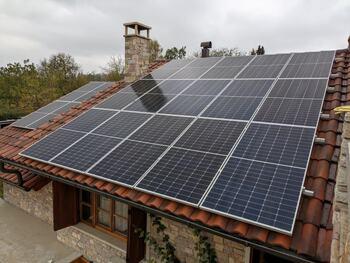Objective
The citizens of Serbian cities are becoming increasingly aware of the benefits of the energy transition in buildings and have access to appropriate solutions.
Approach
The project supports the Ministry of Mining and Energy in establishing the legal framework for the energy transition in the building sector. To this end, it carries out analyses and is developing plans to create the foundations for wider use of photovoltaic systems, sustainable heating solutions, heat pumps and improved energy efficiency.
The project also develops model applications to prove the technical and financial feasibility of the prosumer approach and integrated solutions for buildings. These models are examples of good practices and showcase the cooperation between various partners from the public and private sectors in investments in renewable energy sources.
Public awareness activities include developing information products on the technical and economic potential of the energy transition in the building sector.
Educational activities, workshops and training sessions on installing photovoltaic and heat pump systems improve the capabilities of installers, municipal energy managers and students at universities and secondary schools. This contributes to decentralising the energy sector, driving the energy transition, developing rural regions and reducing greenhouse gas emissions.
Last update: November 2023

